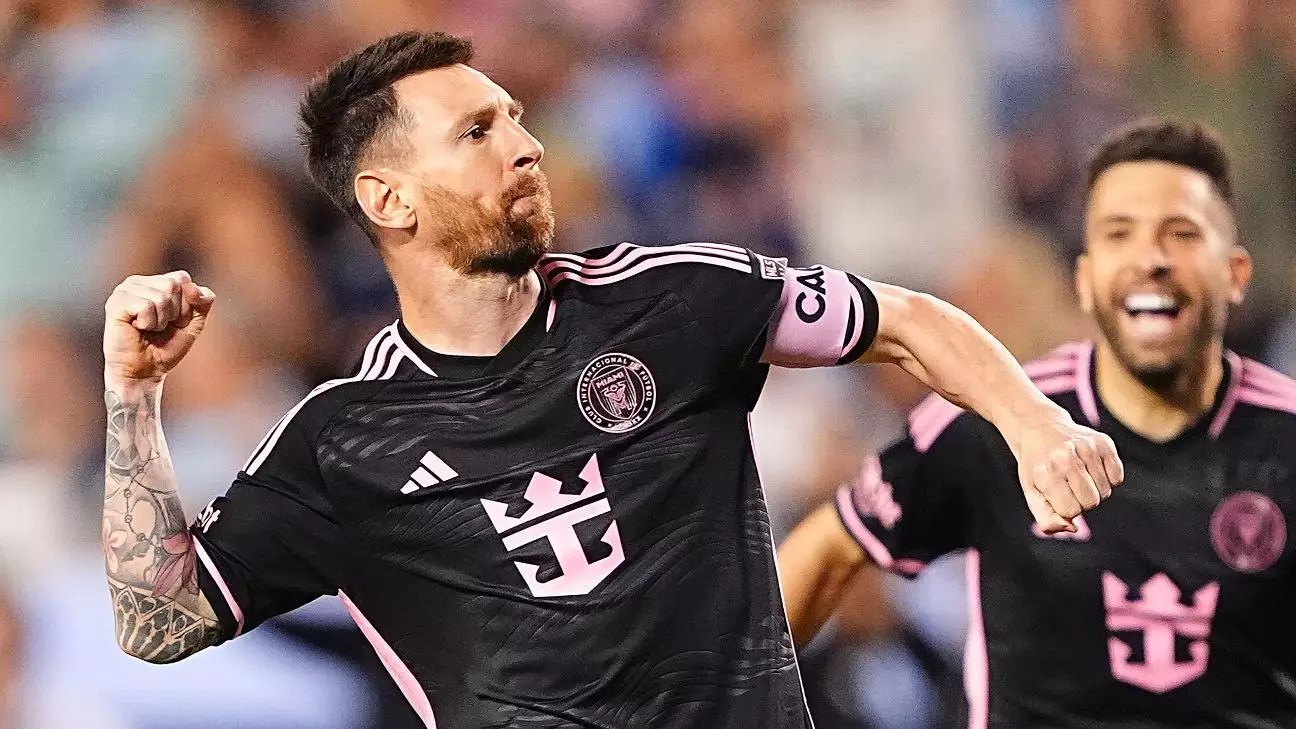The quest for the Most Valuable Player (MVP) award in any sports league often leads to spirited debates. The term “value” is subjective and varies across contexts. Is the MVP simply the most talented individual, or must their performance be intertwined with their team’s achievements? Should statistics alone dictate this distinction, or do the intangibles—like leadership and influence—also weigh heavily? This discussion becomes particularly pertinent in light of Lionel Messi’s recent recognition as the MLS Landon Donovan MVP. While Messi undeniably brings a unique brilliance to the pitch, the extensive implications of his victory merit deeper scrutiny.
Messi’s selection as MVP prompted discussions about the criteria that should govern such accolades. Observers frequently assess the winner’s performance metrics alongside their overall impact within the league. For Messi, the stats speak volumes: he contributed a staggering 36 goals for Inter Miami, or 2.18 goals per 90 minutes played—a number that is impressive by any standard. He transformed a struggling team into a powerhouse, leading them to a record-breaking 74 points. Such figures bolster the narrative of Messi as a deserving winner. However, certain elements of his season raise significant questions about the appropriateness of this accolade.
A critical aspect of the MVP debate revolves around availability and durability. Messi participated in only 19 out of 34 regular-season matches, equating to less than 56% of his team’s total games. This appears inconsistent when juxtaposed with MVP recipients from other major leagues. In the NFL, for instance, John Elway played 80% of the games during his MVP season. Similarly, figures from the NHL and MLB suggest that players typically need to participate in a larger proportion of their team’s contests to be deemed worthy of the MVP title.
This discrepancy highlights a key conundrum: while Messi’s impact was undeniable, his absence for substantial portions of the season raises questions about his overall value. How can a player earn the title of MVP when they are not consistently present on the field? Does transformative performance in limited play warrant the ultimate accolade, or should regular participation carry more weight in determining the true value of a player?
Performance Versus Impact
Examining Inter Miami’s performance with and without Messi further complicates the MVP discussion. When Messi was actively playing, his team went on to achieve a record of 12 wins, 6 draws, and a single loss, showcasing their offensive prowess. Without him, the team’s performance dropped significantly, though they still managed to win 10 matches. This stark contrast begs the question: to what extent do Messi’s contributions elevate the team dynamic beyond the scope of usual performance measurements?
Nonetheless, the statistics indicate that the team was capable of achieving success in Messi’s absence. They demonstrated the potential to earn a similar number of points over an entire season. This realization fosters skepticism surrounding the argument that Messi alone made the vital difference. If Miami could still contend at a high level, should we reconsider the weight given to individual accolades relative to overall team performance?
The Influence of Star Power on Recruitment and Revenue
One cannot discuss Messi’s impact without acknowledging his global stature. His presence in MLS has not only enhanced Inter Miami’s competitive edge but has also significantly uplifted the league’s overall profile. Sponsors flock to teams featuring stars, and ticket sales surge when Messi is on the roster. The financial influx that accompanies Messi’s involvement directly elevates the entire league’s status—we are witnessing a phenomenon that goes beyond mere statistics.
Although these financial and recruiting implications should not overtly influence MVP voting, they certainly operate in the subconscious realm of decision-making. The allure of signing other notable talents like Luis Suárez and Sergio Busquets owes heavily to Messi’s gravitational force. Is this broader impact a valid point of consideration when assessing who qualifies as MVP? It certainly adds a layered complexity to how we perceive “value.”
Despite the concerns surrounding participation and performance metrics, there remains a compelling argument for Messi as the 2024 MLS MVP. Essentially, his unparalleled talent and the unique draw he exerts create a paradigm shift within the league—a transformation in which no player can be transcended easily. While other players statistically shone on the pitch, none could rival the phenomenon that is Messi. His ability to change the trajectory of games, coupled with the way he elevates those around him, firmly positions him as the most valuable player.
The debate surrounding MVP selection inherently hinges on personal biases and interpretations of value. Whether one views Messi’s limited participation as a mitigating factor or a component of his extraordinary influence, the context of the award continues to evolve. His victory as the MLS MVP serves not only as recognition of his talent but also as a reminder of the changing dynamics within sports accolades, where individual performances must be weighed against collective achievements and broader implications.


Leave a Reply